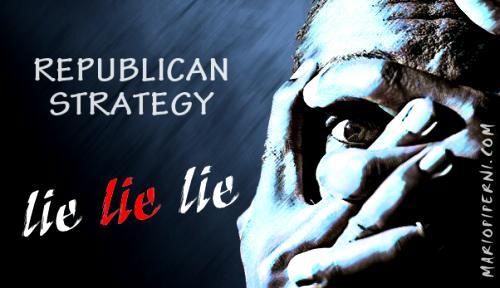Reflections of a RepubliKlan Operative Who Left the Cult
Sept. 3, 2011
Mike Lofgren has been working for 28 years as a congressional aide, on the Republican side, earning more than $100,000 a year every year since at least 2001. He worked as Repub staff on both the House and Senate Budget Committees. He is a serious insider who knows how things work and where the bodies are buried.
He recently retired and has decided to say what he has learned about the two parties and it’s amazing. His confession, titled “Goodbye to All That: Reflections of a GOP Operative Who Left the Cult,” was published over the weekend.
Excerpts:<blockquote>
“It should have been evident to clear-eyed observers that the Republican Party is becoming less and less like a traditional political party in a representative democracy and becoming more like an apocalyptic cult, or one of the intensely ideological authoritarian parties of 20th century Europe. This trend has several implications, none of them pleasant.”
“Republicans are among the most shrill in self-righteously lecturing other countries about the wonders of democracy; exporting democracy (albeit at the barrel of a gun) to the Middle East was a signature policy of the Bush administration. <SPAN STYLE="background-color:YELLOW">But domestically, they don't want those people voting. You can probably guess who those people are. Above all, anyone not likely to vote Republican. As Sarah Palin would imply, the people who are not Real Americans. Racial minorities. Immigrants. Muslims. Gays. Intellectuals. Basically, anyone who doesn't look, think, or talk like the GOP base.”</span>
“A couple of years ago, a Republican committee staff director told me candidly (and proudly) what the method was to all this obstruction and disruption. Should Republicans succeed in obstructing the Senate from doing its job, it would further lower Congress's generic favorability rating among the American people. By sabotaging the reputation of an institution of government, the party that is programmatically against government would come out the relative winner."
<SPAN STYLE="background-color:YELLOW">“The GOP cares solely and exclusively about its rich contributors. The party has built a whole catechism on the protection and further enrichment of America's plutocracy. Their caterwauling about deficit and debt is so much eyewash to con the public. Whatever else President Obama has accomplished (and many of his purported accomplishments are highly suspect), his $4-trillion deficit reduction package did perform the useful service of smoking out Republican hypocrisy. The GOP refused, because it could not abide so much as a one-tenth of one percent increase on the tax rates of the Walton family (WalMart) or the Koch brothers, much less a repeal of the carried interest rule that permits billionaire hedge fund managers to pay income tax (15%) at a lower effective rate than cops or nurses. Republicans finally settled on a deal that had far less deficit reduction - and even less spending reduction! - than Obama's offer, because of their iron resolution to protect at all costs our society's overclass.”</span></blockquote>
Read the entire confession HERE














